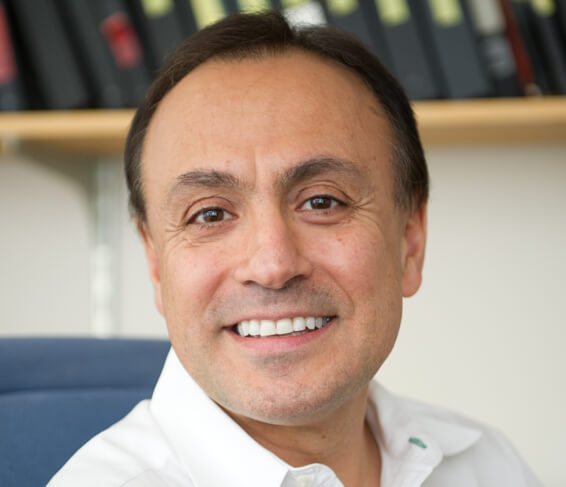Key Takeaways:
- Proteins that control cell growth are often potential targets for cancer drugs.
- Conventional thought was that some of these kinases were off limits for targeting due to their essential function in normal cells.
- But new research indicates one such protein, CDC7, may in fact be an attractive therapeutic target.
The cells in our body replicate themselves in a tightly regulated series of steps and molecular checkpoints that act as gatekeepers. A set of proteins called cell cycle kinases, including CDK1, CDK4, and CDK6, control various phases and timing of the process so that cells divide and replicate only when needed, and under strict control.
Many cancers develop from cells in which cell cycle proteins have undergone hyperactivation, allowing those cells to escape growth control and proliferate uncontrollably to form tumors. Some newer cancer drugs work by selectively inhibiting overactive cell cycle kinases such as CDK4 and CDK6 to halt this disorderly growth without harming normal cells.
But until recently, scientists believed that a key protein in the cell cycle, called CDC7, which prompts the cell to begin copying its DNA prior to cell division, was essential in normal cells. The researchers noted that CDC7 is upregulated in cancer cells, and overexpression of CDC7 correlates with poor clinical prognosis.
Blocking CDC7 might inhibit the abnormal growth, the dogma said, but it would likely also block proliferation of normal cells. However, this view of CDC7 may be overturned by new findings by scientists in the Dana-Farber laboratory of Peter Sicinski, MD, PhD, which were published in May 12 issue of Nature. Jan M. Suski, PhD, a postdoctoral fellow in the Sicinski lab, was the first author on this study. This work represented a close collaboration with the laboratory of Tobias Meyer, PhD, of Weill Cornell.

The researchers used new techniques to remove CDC7 in a variety of mammalian cell types. They found that normal cells in mice, and possibly in all mammals, can proliferate in the absence of CDC7 due to the activity from another cell cycle kinase, CDK1 — even though the latter is structurally very different from CDC7 and had been thought to have a completely separate role in cell division. In other words, CDC7 and CDK1 are functionally redundant, and these observations “revise our understanding of cell cycle progression,” the researchers wrote.
“The belief that CD7 was essential for replication of DNA and cell division represented a dogma that has precluded targeting this kinase for cancer,” says Sicinski. “But we found that this kinase is not essential, because it works in concert with CDK1.”
“Further research is needed to re-assess the requirement for CDC7 in cancer cells” Sicinski said, “and these studies may add CDC7 to the list of proteins which are not required in normal cells but are essential in cancer cells.”
The results of the newly reported research “raise the possibility that CDC7 inhibition might represent an attractive therapeutic strategy,” the authors wrote.
